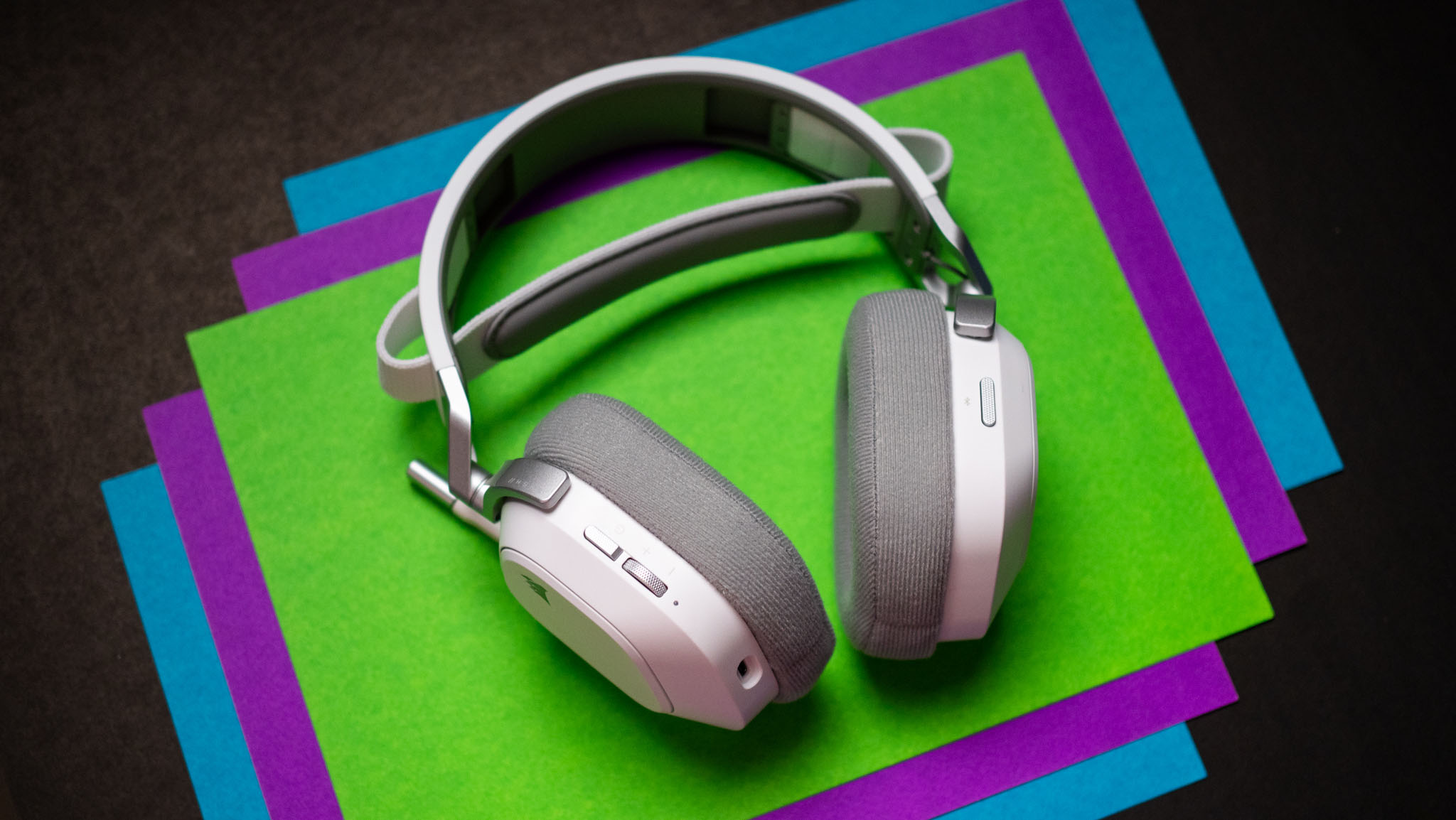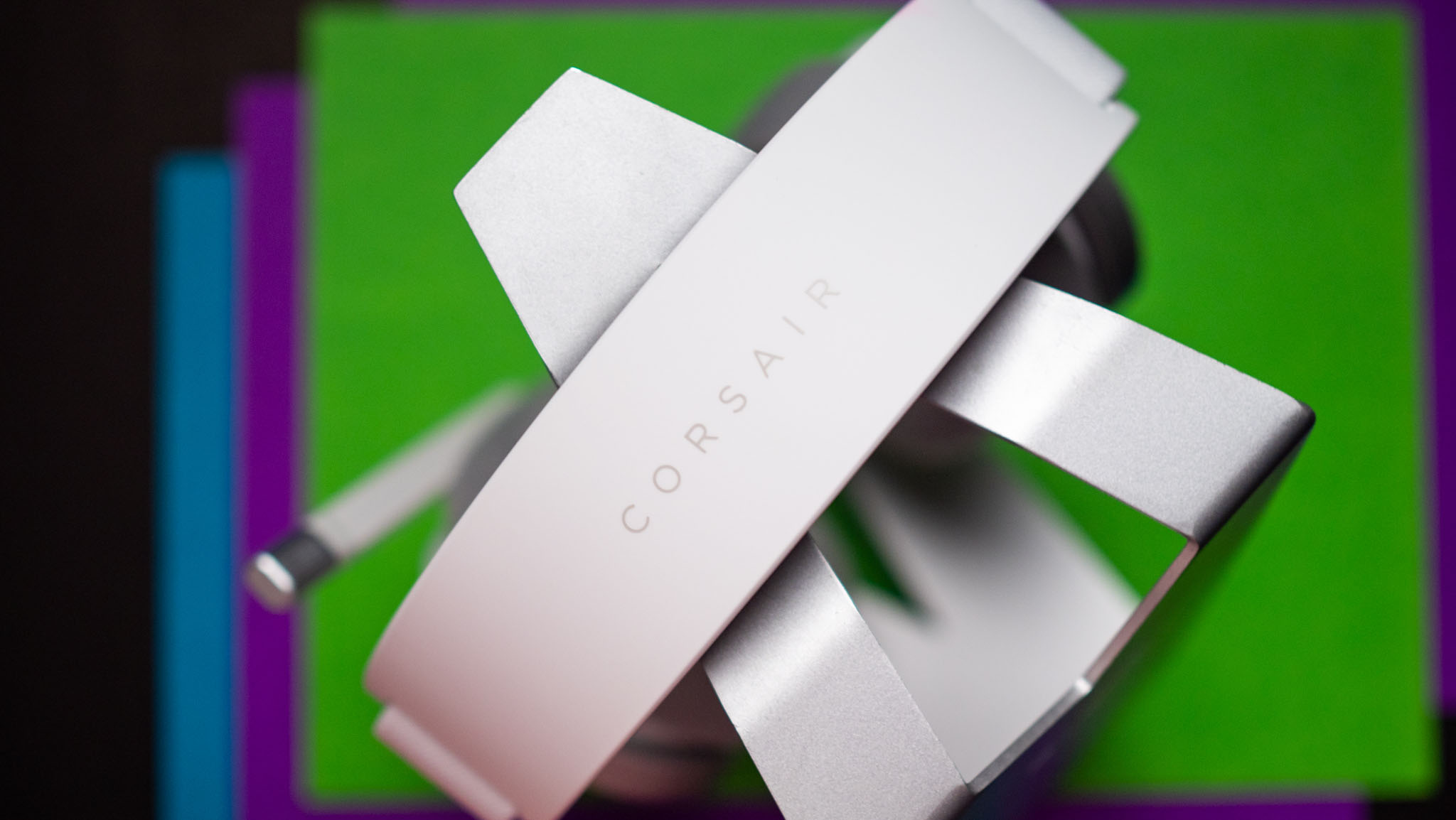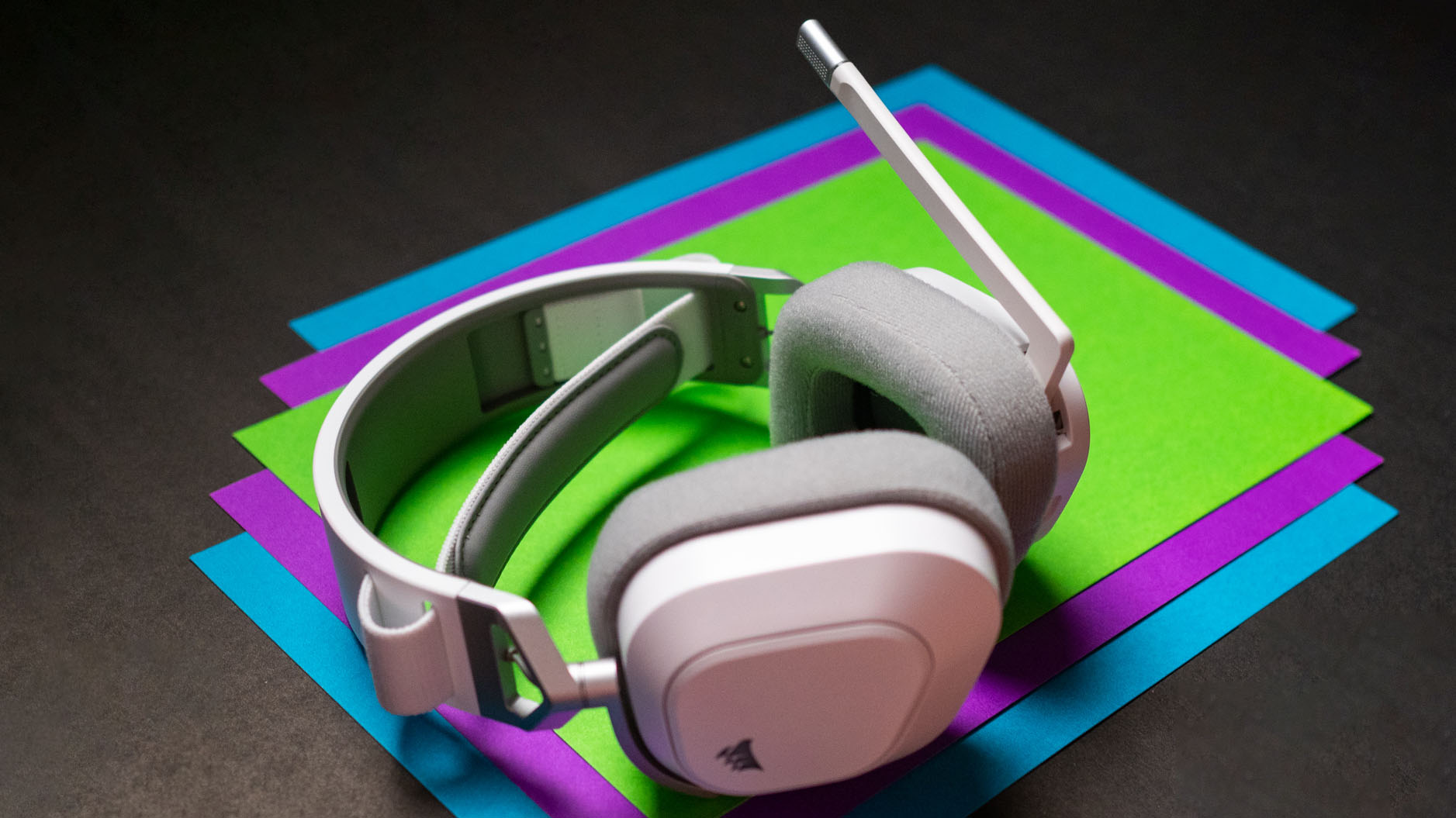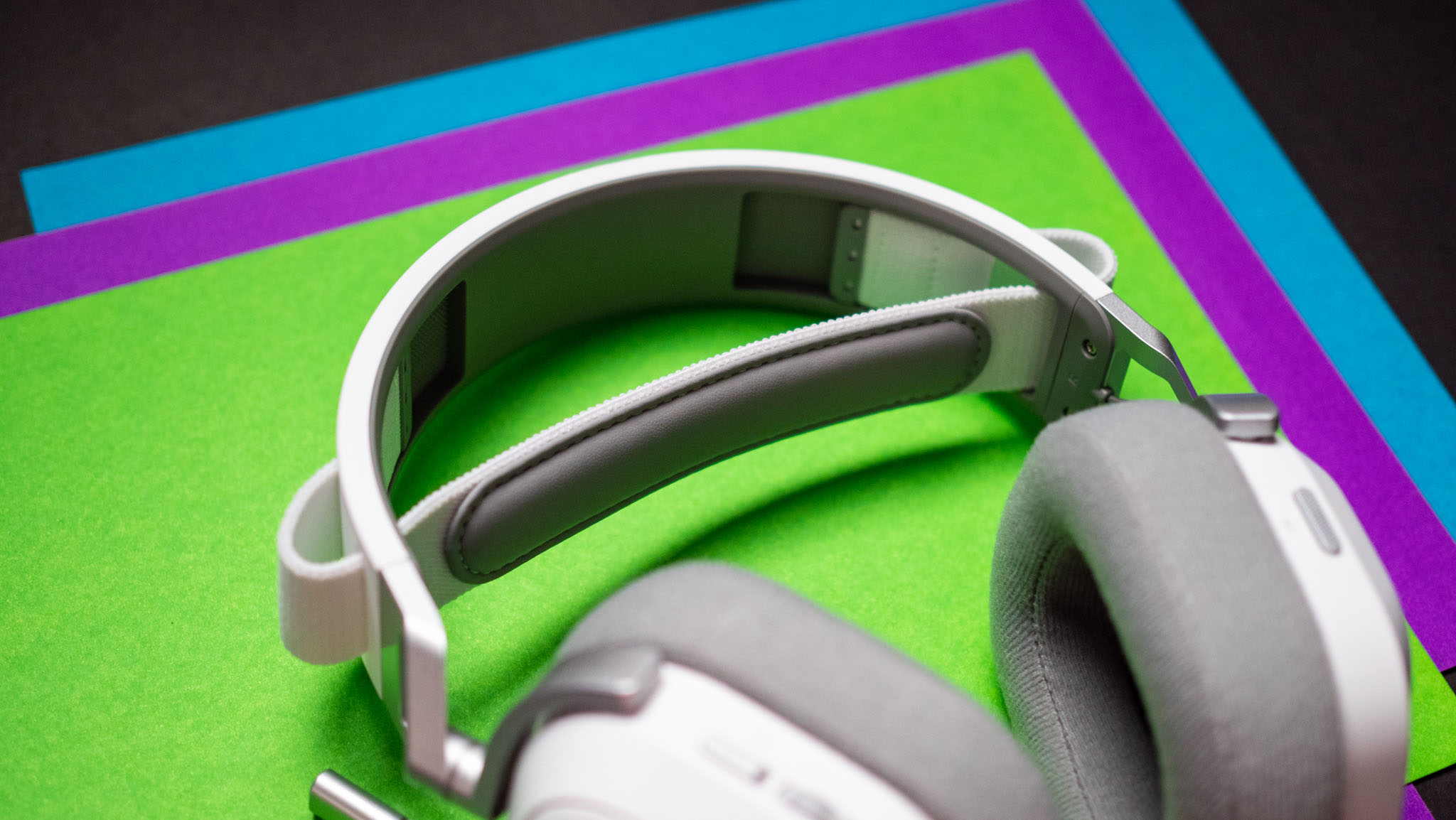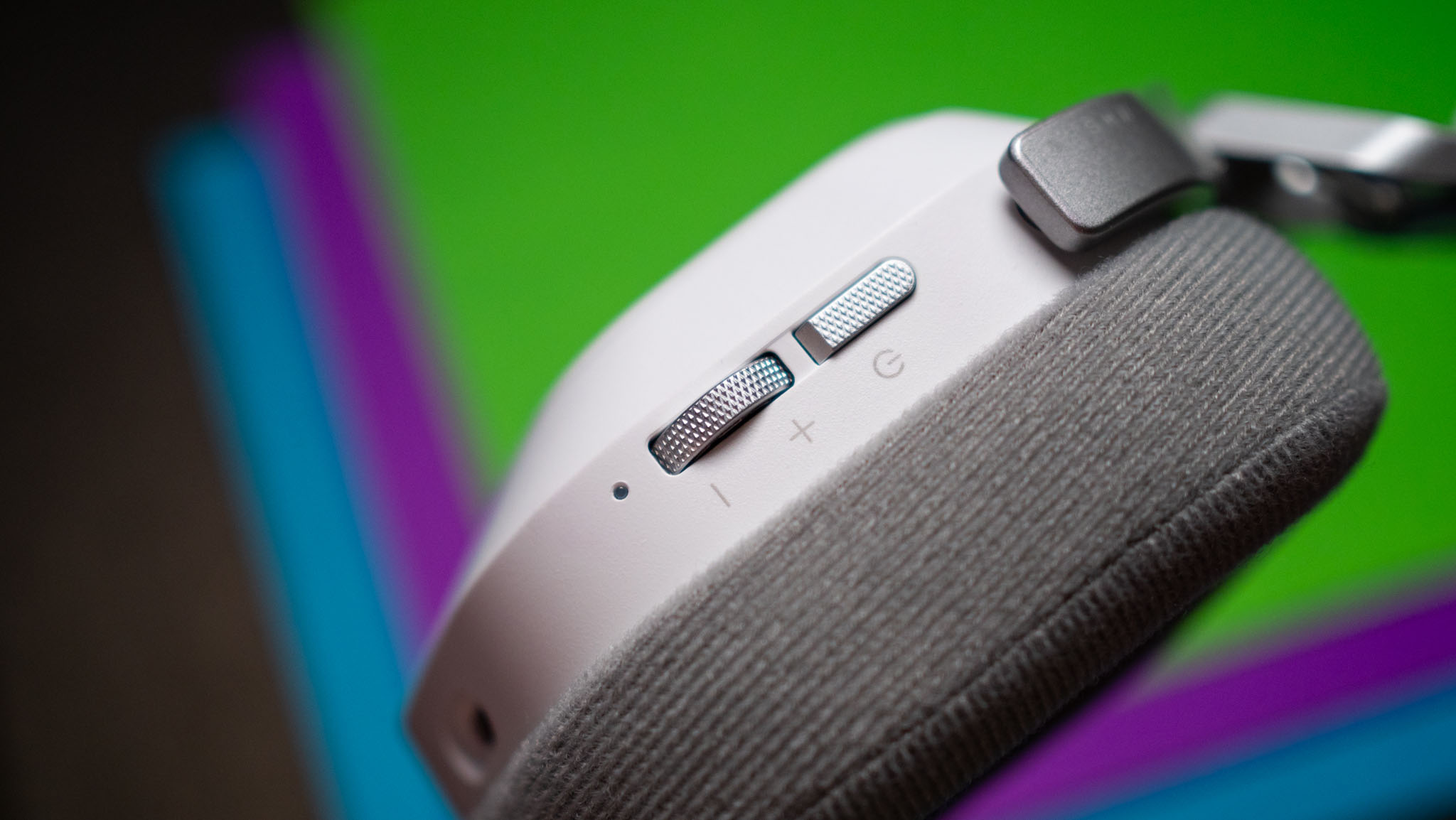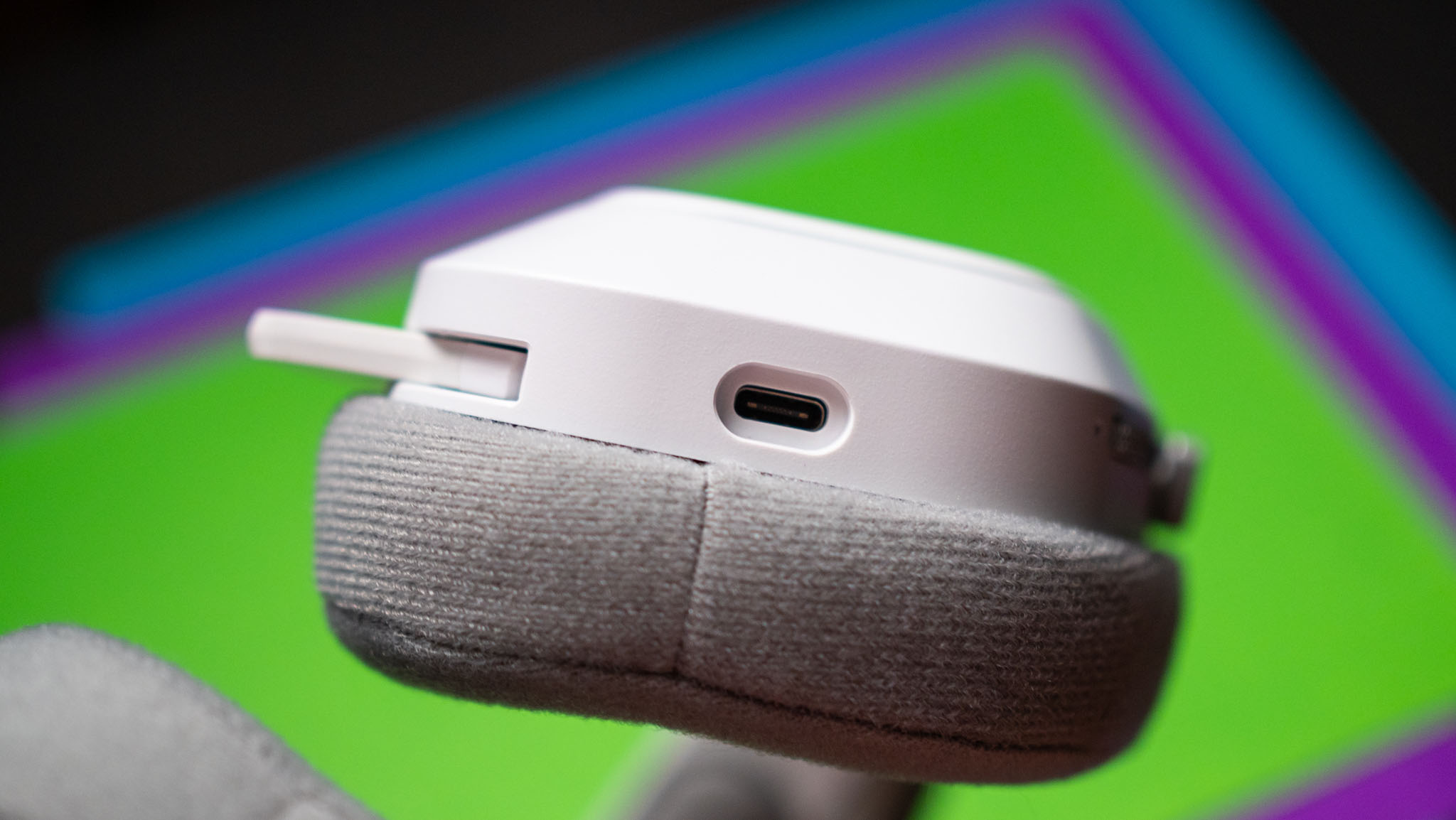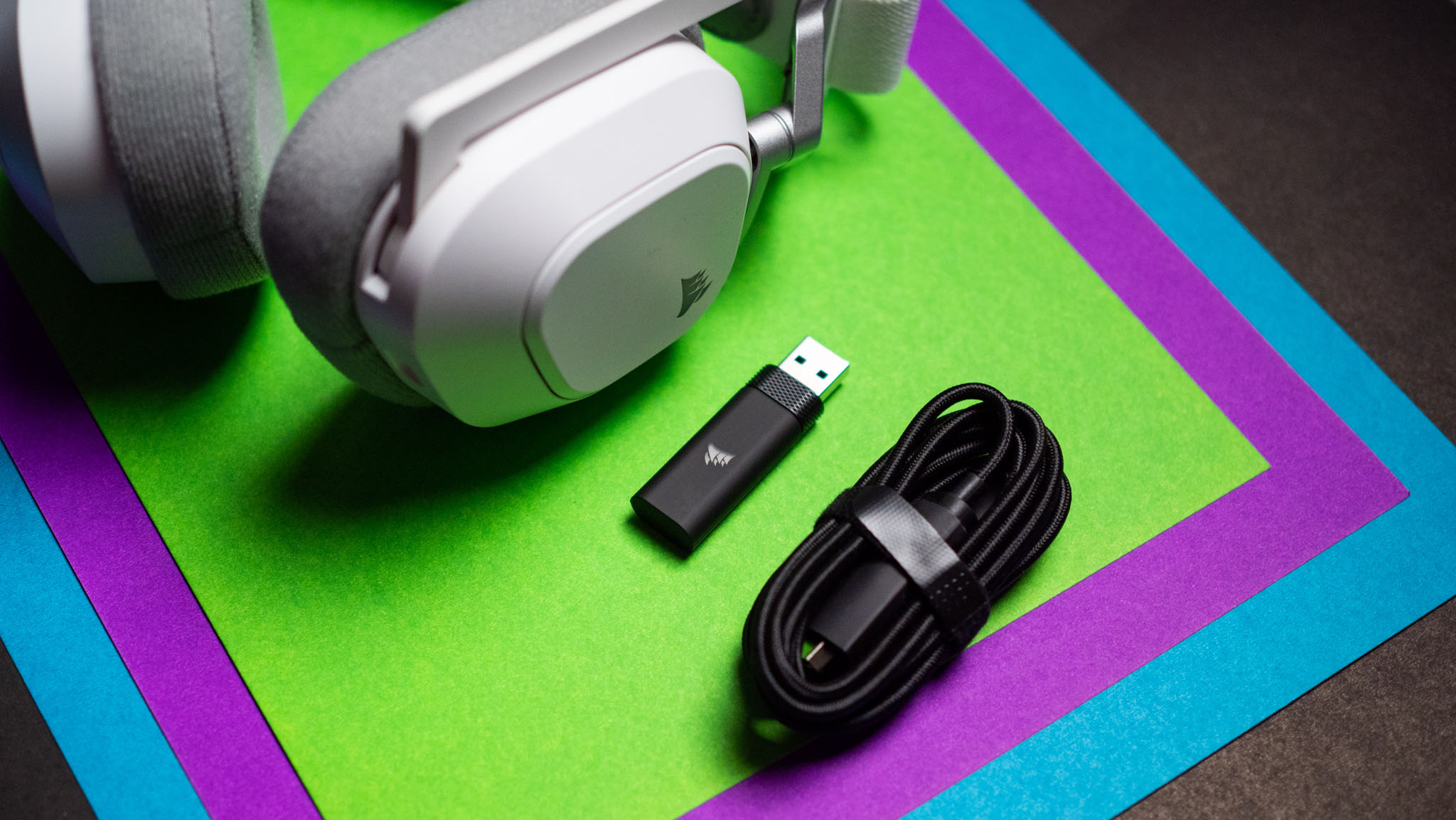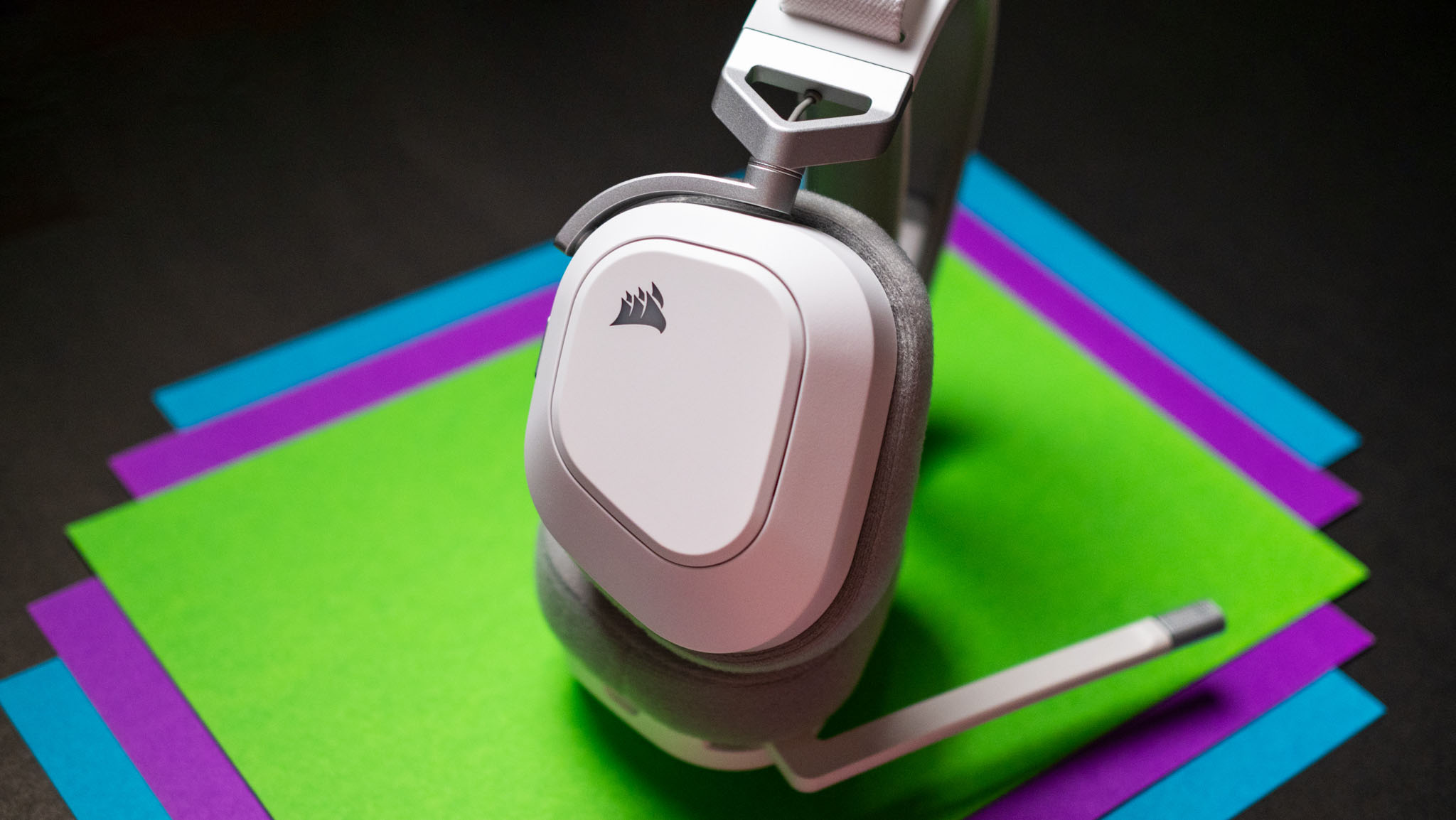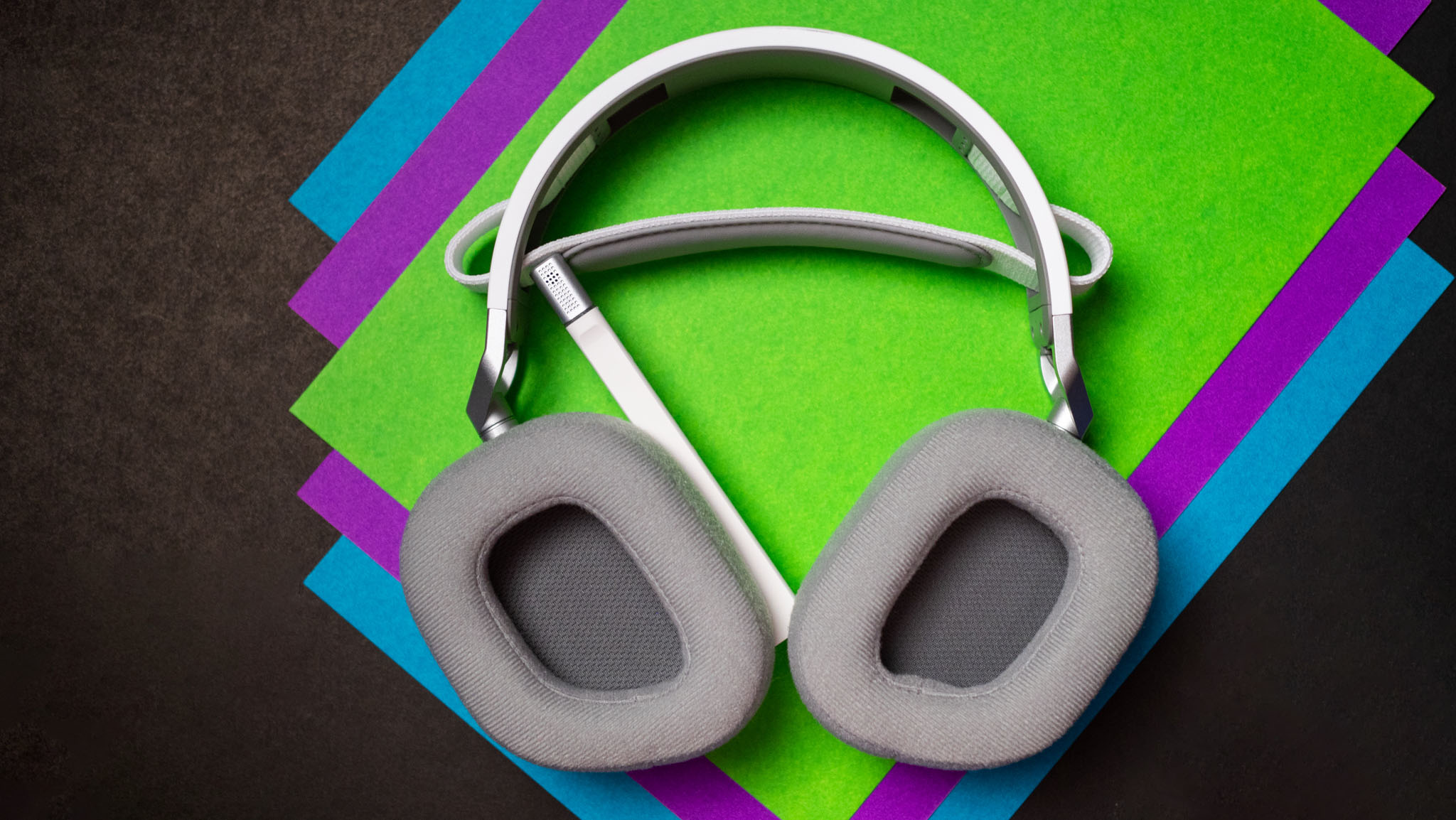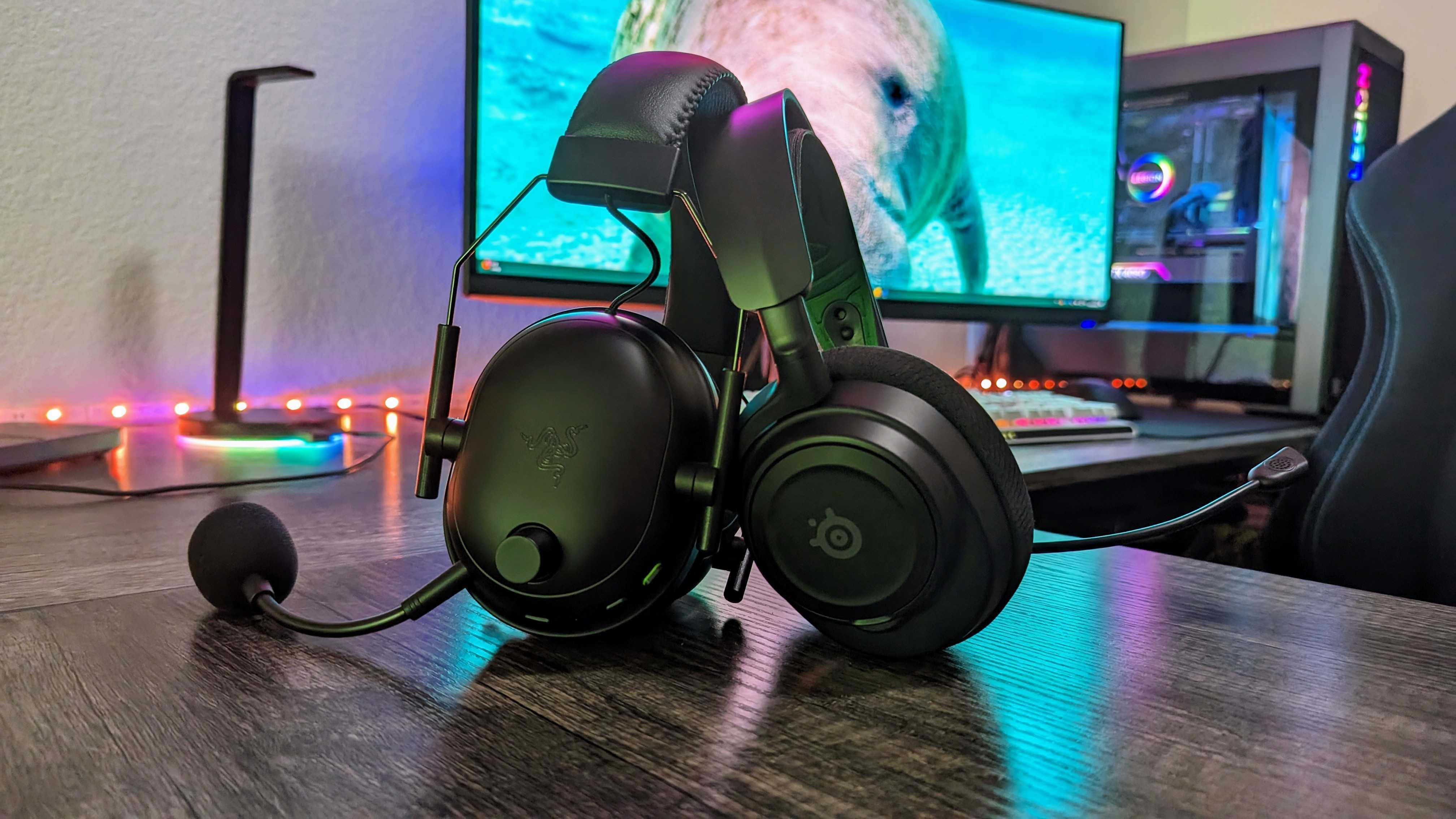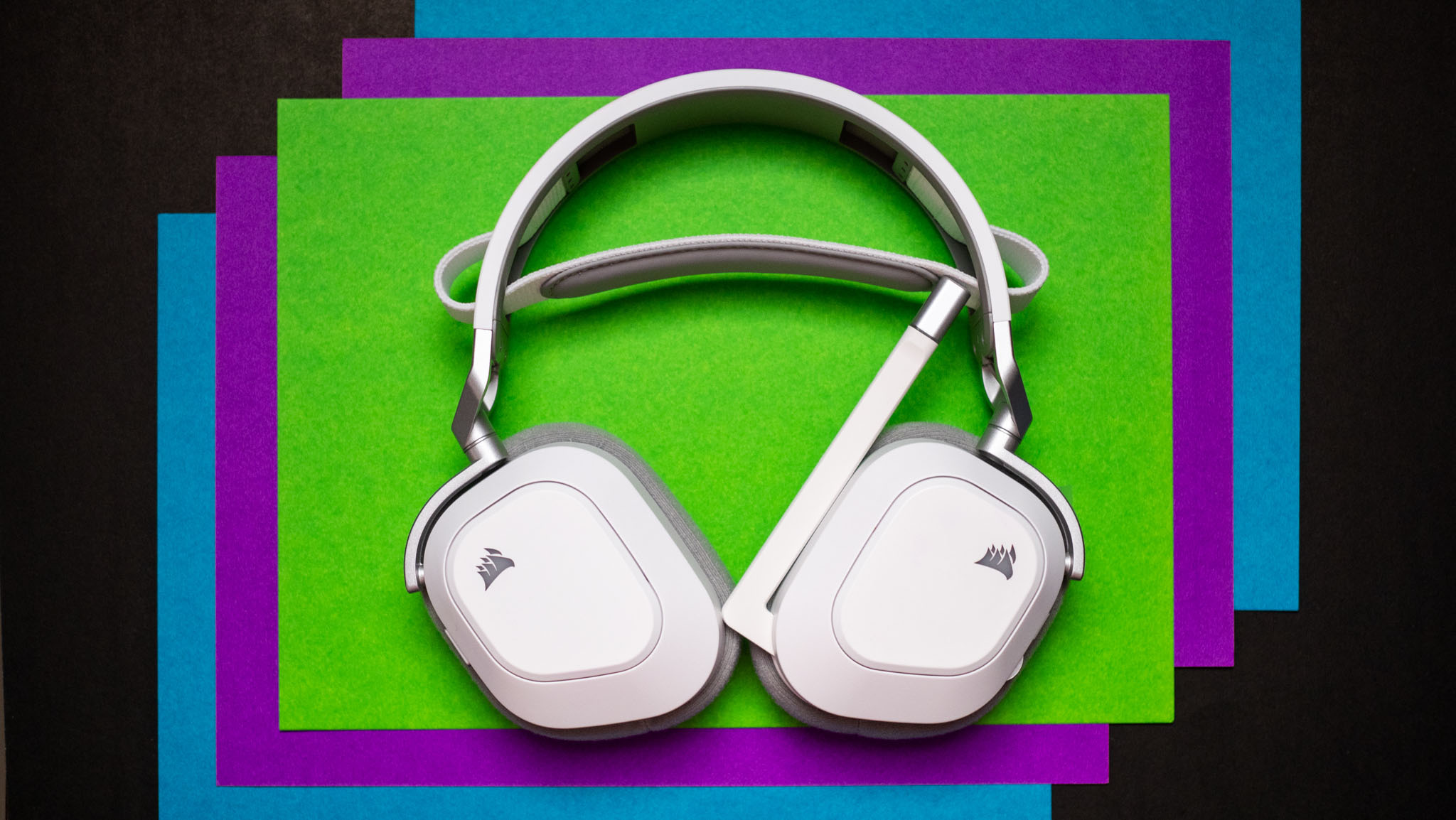Windows Central Verdict
The HS80 Max retains the same great design as the HS80 Wireless, and that makes it comfortable for all-day use. You get terrific sound quality with plenty of customizability, Bluetooth, and 2.4GHz connectivity. The headset is noticeably lighter while still being durable, and the battery life is amazing — you'll only need to charge it once a week. Overall, Corsair did a great job updating the HS80 Wireless, and the HS80 Max is an easy recommendation if you need a comfortable gaming headset.
Pros
- +
Comfortable to wear throughout the day
- +
Great sound quality
- +
SoundID makes a difference
- +
Amazing battery life
- +
Versatile connectivity with 2.4GHz and Bluetooth
- +
Good mic with NVIDIA Broadcast integration
Cons
- -
Bluetooth only pairs with one device at a time
- -
Mic isn't detachable
Why you can trust Windows Central
Corsair launched the previously-reviewed H80 Wireless gaming headset over two years ago, and it became a best-seller for the brand. It isn't hard to see why; the headset combines a comfortable design with excellent sound, a high-quality mic, and reliable connectivity. Corsair is building on those fundamentals with the introduction of the HS80 Max, retaining a similar design and feature set while offering a few enticing upgrades.
The biggest change is battery life, with the HS80 Max able to last up to three times as long as the standard model. Corsair is also rolling out fast charging with this model, which was missing on the regular HS80. And if you don't want to rely on the USB dongle, there's Bluetooth connectivity here, making the HS80 Max that much more versatile, not just for gaming but also for watching movies and TV shows.
So, if you're looking to pick up a new gaming headset, here's why you should consider the HS80 Max.
Corsair HS80 Max: Specs, price, and release date
Corsair launched the HS80 Max on August 10, and the headset is now available globally. It retails for $179 in the U.S., and you can pick it up from Corsair or get it for slightly less ($174) at Amazon. It comes with Corsair's standard two-year warranty.
| Category | Corsair HS80 Max |
|---|---|
| Connection | USB wireless receiver (2.4GHz), Bluetooth 5.0 |
| Range | 50ft |
| Battery Life | Up to 24 hours with RGB, up to 65 hours without RGB, up to 130 hours via Bluetooth |
| Drivers | 50mm neodymium drivers |
| Sensitivity | 119dB |
| Impedance | 32k Ohms @ 1kHz |
| Frequency Response | 20Hz - 40kHz |
| Compatibility | PC, Mac, PlayStation 4, PlayStation 5 |
| Microphone | Omni-directional |
| Microphone Frequency Response | 100Hz - 10kHz |
| Lighting | RGB, configurable in iCUE |
| Colors | Steel Gray, White |
| Audio | Dolby Atmos, virtual surround sound |
| Weight | 325g |
Corsair HS80 Max: Design and comfort
Corsair hasn't changed the design of the HS80 Max, and that's a good thing. The HS80 was one of the most comfortable gaming headsets I used, and the HS80 Max has the same great fit and comfort. The headset has an aluminum frame that gives it structural rigidity, and the build quality is on par with the best gaming headsets.
The floating headband design ensures the weight of the headset is evenly distributed across your head, and at 325g, it is a full 98g lighter than the regular model. The difference is immediately noticeable, and the floating headband combined with the plush memory foam ear cushions make the HS80 Max comfortable even during extended gaming sessions. I'll have to note that I switched to this headset from the Audeze LCD-X I reviewed at Android Central, which weighs 612g — my neck definitely liked the HS80 Max a lot more.
One of the best parts of the design is the earpads, which are encased in a breathable fabric with good ventilation. While the Virtuoso RGB XT I reviewed uses leather earpads, most Corsair headsets offer the same fabric material, and it is particularly well-suited for extended use. The earpads are comfortable, too, thanks to a layer of memory foam, and the angled design means you get a great fit.
All the latest news, reviews, and guides for Windows and Xbox diehards.
Another area where the HS80 Max excels is the clamping force; it isn't as high as the standard HS80, so you don't feel that much pressure on your ears even with all-day use. The headset uses a swivel design, so the earpads fold flat, and the hinge connecting the earpads to the headband is reinforced by aluminum and remains sturdy.
The multifunction button and volume rocker are located on the left, and they're positioned just right; you can intuitively access them in-game without any issues. The Bluetooth pairing button sits on the right, and again, it's easily accessible. Both buttons and the volume rocker are textured, and that makes them easier to use. When you need to charge the headset, there's a USB-C port on the left.
And because this is a Corsair product, you get RGB lighting — obviously. The Corsair logo on each earpad lights up, and you can set custom lighting effects in iCUE. The HS80 Max has a boom mic that's not detachable, but it tucks away neatly when not in use and doesn't come in your line of sight.
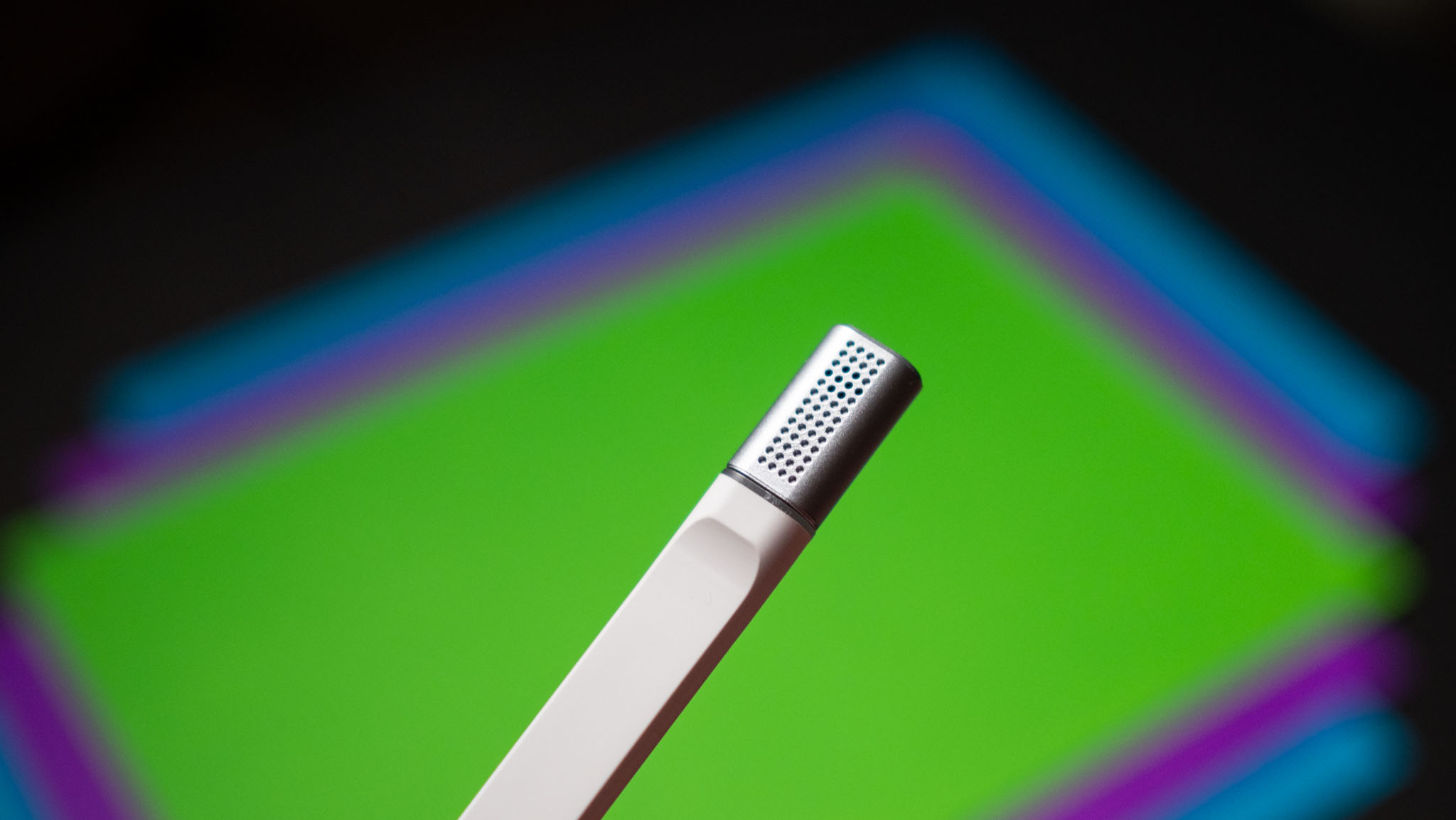

Corsair sells the headset in black and white color variants, and having used the black version for the HS80, I distinctly prefer the white model — it just looks a little more elegant. Overall, I have zero issues with the design of the HS80 Max, and the lighter design combined with fabric earpads and adequate cushioning make these a fantastic choice if you want a comfortable gaming headset.
Corsair HS80 Max: Connectivity and battery life
You get plenty of connectivity options with the HS80 Max, and you can use the gaming headset with just about any platform. It has a USB receiver that pairs over 2.4GHz, and you can plug it into a PC, Mac, or PlayStation 4/5 without any hassle. What's particularly interesting is the addition of Bluetooth, and this significantly broadens the range of devices the headset works with. You can easily connect it to a handheld like the Steam Deck or Nintendo Switch, and you get rock-solid connectivity.
I didn't see any problems with connectivity over 2.4GHz or Bluetooth, and the HS80 Max delivered a lag-free connection in the month I used the headset. The only quibble I have in this area is that there's no multipoint connectivity via Bluetooth, so you can't switch between paired devices easily. Other than that, the HS80 Max ticks all the right boxes in this area.
There's a decent amount of customizability via the software as well. You'll need to use iCUE, and while there was a lot to dislike about the software in the past, Corsair overhauled the design and feature set recently, and it is great to use. With the HS80 Max, you get the ability to adjust lighting effects, set up NVIDIA Broadcast integration — provided you have a machine with an NVIDIA RTX card — and tweak the 10-band parametric EQ to your liking.
What's cool here is SoundID, a customized equalizer by Sonarworks that lets you tweak the sound signature based on your preferences. It's basically a hearing test, and you select the sound profile that sounds better, following which the EQ is adjusted. If you don't want to mess with the EQ manually, this is a good alternative.
Battery life is one area where Corsair really turned things around. I got just 13 hours of use from the HS80, and the HS80 Max managed to last up to 22 hours with RGB effects enabled. Without RGB lighting, I easily got over 60 hours of hours before having to charge the headset, and honestly, that may be the way to go. If you don't care about the RGB lighting — and there isn't much of it here anyway — you can easily get more than a week's worth of use out of a single charge.
There's good news on the charging front as well, and you can use fast charging to easily get up to six hours of battery from a 15-minute charging. This makes a big difference if you realize the headset is running low on power but still want to play a game.
Corsair HS80 Max: Sound quality
Just like the design, Corsair didn't fiddle with the sound quality of the HS80 Max. The headset uses 50mm neodymium drivers, and these are the same that you get on the costlier Virtuoso RGB XT. You get a dynamic sound that lends itself well to gaming, with plenty of vibrancy in the bass regions. The mid-bass shines through, making action sequences in games that much more immersive, and the headset has a good presence in the mid-range as well, so you get clear dialogue and good layering of instruments.
You get some harshness with the treble, but that isn't a huge factor when playing games. Overall, the HS80 Max sounds very detailed, and the warm tonality gives it a lot of character in this category. And you get Dolby Atmos virtual surround as well, and while I'm not a fan of the feature, it makes a difference.
Corsair did a good job with the mic as well, and while I wouldn't call it broadcast-level, it is perfectly serviceable for gaming. There's no distortion, and thanks to NVIDIA Broadcast integration, you can easily tune out background noise and room echo.
Corsair HS80 Max: The competition
There's no shortage of gaming headsets, and the SteelSeries Arctis Nova 7 has a lot of the same features as the HS80 Max. You get a comfortable design with great sound, 2.4GHz and Bluetooth connectivity, and a battery life that goes up to 38 hours between charges.
Corsair HS80 Max: Should you buy it?
You should buy this if:
- You need a comfortable gaming headset
- You want outstanding battery life
- You need versatile connectivity
- You want a warm sound signature with easy customizability
You shouldn't buy this if:
- You need multi-device connectivity over Bluetooth
Corsair added much-needed features to the HS80 Max to make it stand out from the standard model. The addition of Bluetooth gives it much better versatility, and you can easily switch between USB and Bluetooth modes seamlessly.
The headset is supremely comfortable, and the lighter design makes a genuine difference in daily use. The sound quality is on par with the best headsets in this category, and iCUE has plenty of customizability. SoundID is a novel addition that lets you tweak the sound profile to your tastes, and the mic is pretty great as well.
But it's the battery life that makes the HS80 Max truly stand out; with 60 hours between charges, the headset is a great choice if you want something that you only need to charge once a week. Sure, you are paying a bit of a premium here, but it is ultimately worth it.
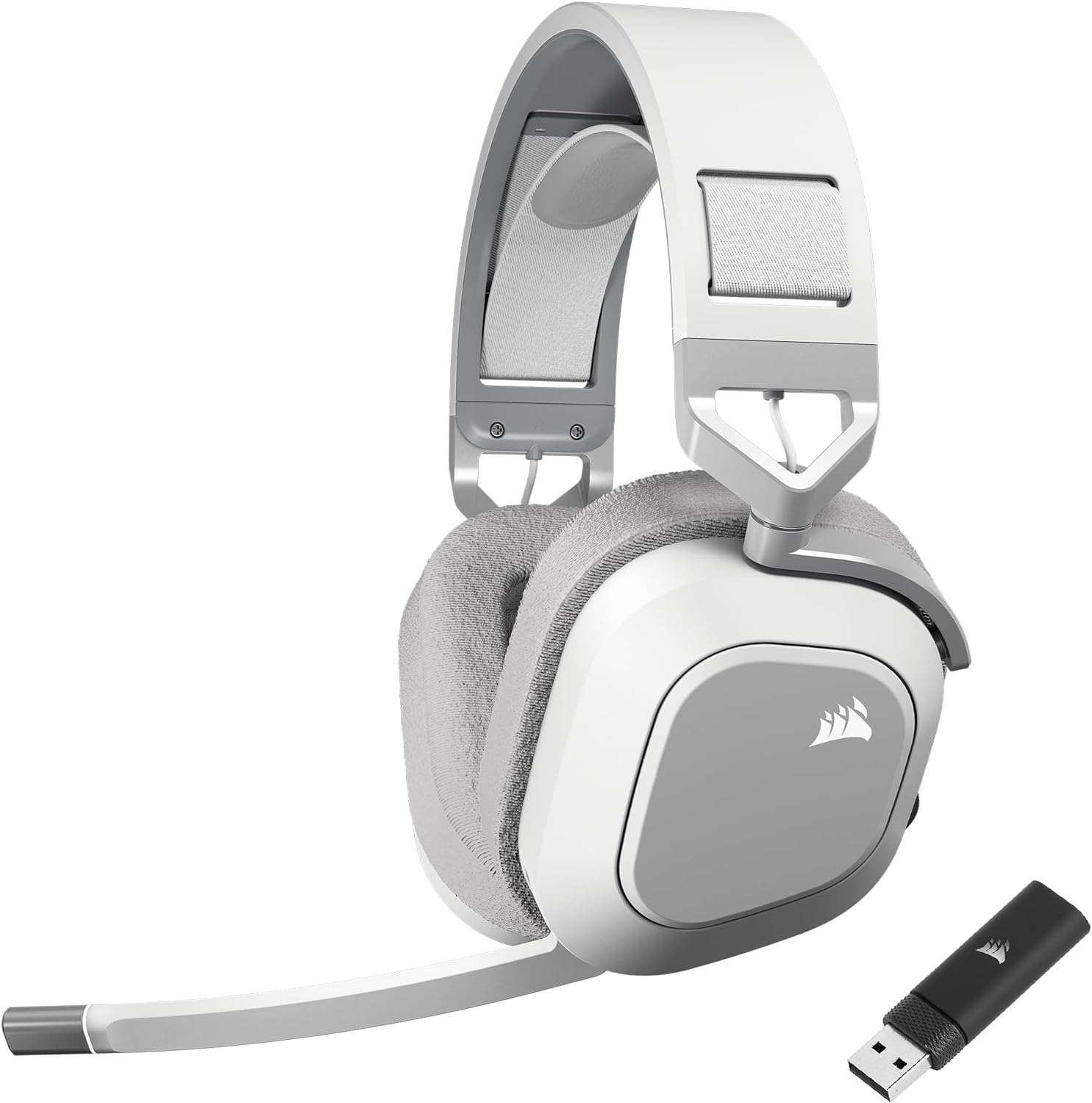
With a comfortable design and long-lasting battery, the HS80 Max nails the basics of a great gaming headset. Combine that with a terrific sound and plenty of customizability, and you have a winner.

Harish Jonnalagadda is a Senior Editor overseeing Asia for Android Central, Windows Central's sister site. When not reviewing phones, he's testing PC hardware, including video cards, motherboards, gaming accessories, and keyboards.
